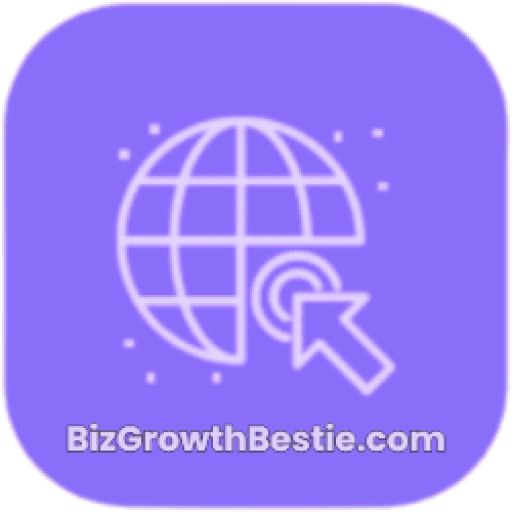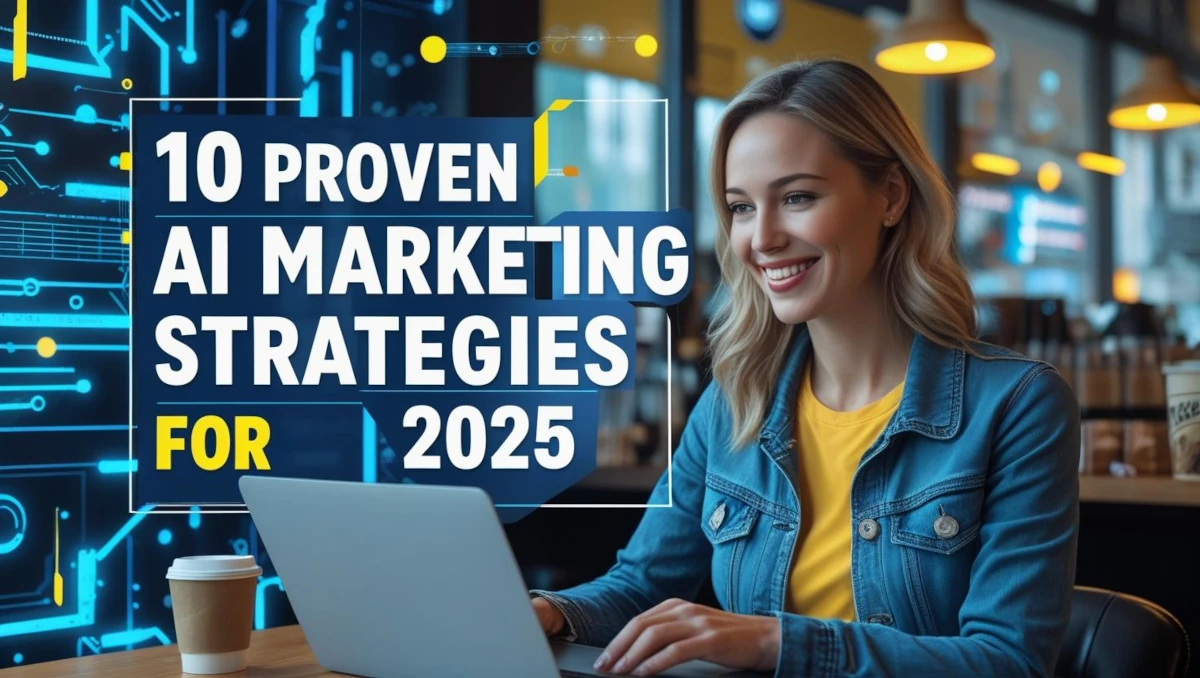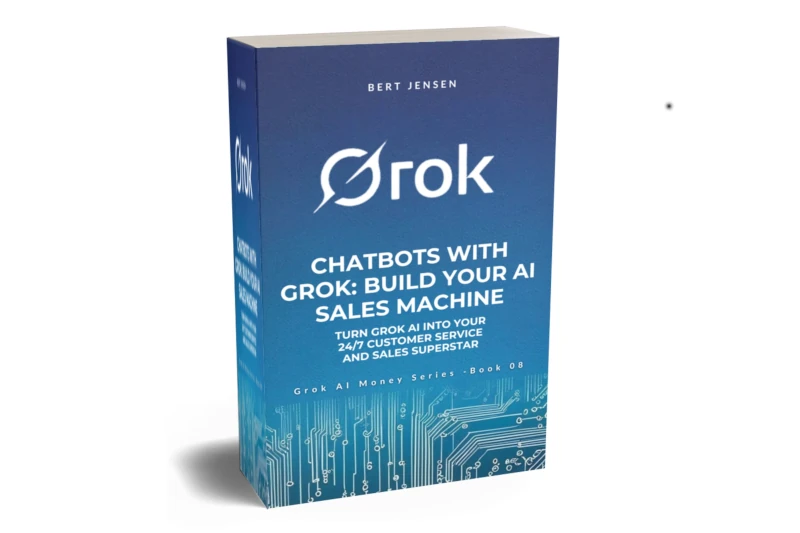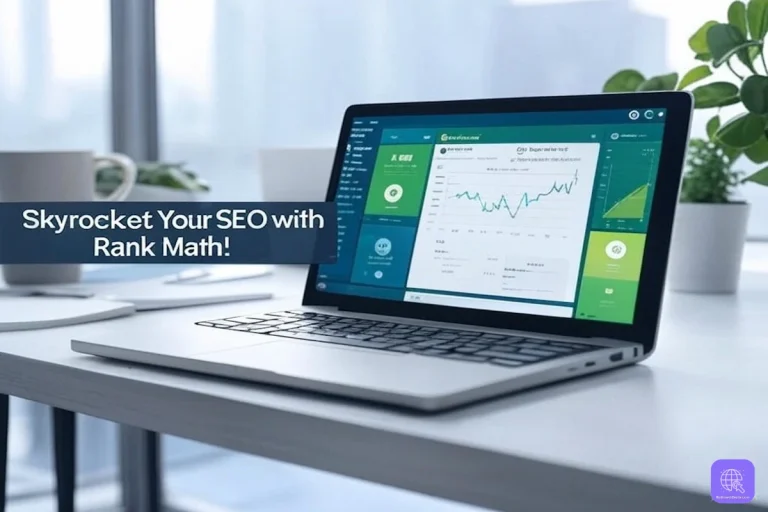AI Marketing for Small Business: 10 Proven Strategies in 2025
Hey there, small biz rockstar! Imagine running your marketing on autopilot—reaching the right customers, boosting sales, and still having time to enjoy your morning coffee. Sounds like a dream, right? In 2025, AI marketing for small business is making that dream a reality. Whether you’re a local bakery, a freelance designer, or an online shop, artificial intelligence (AI) is your new secret weapon.
Searches for “AI marketing for small business” have surged 81% year-over-year, with 5,000–10,000 monthly searches, according to SEMrush. Why the hype? AI saves time, personalizes customer experiences, and fits even the tightest budgets. In this post, we’re diving into 10 proven AI marketing strategies tailored for small businesses. You’ll get practical steps, real-world examples, and quick tips to start today. Ready to make AI your business bestie? Let’s dive in!
Table of Contents
Why AI Marketing Is a Must for Small Businesses
The AI Revolution in 2025
AI isn’t just for tech giants—it’s transforming small businesses in 2025. According to Gartner, AI tools handle 50% of data analysis tasks, freeing up hours for entrepreneurs juggling a million things. From crafting emails to predicting trends, AI marketing for small business streamlines tasks that once took days. The best part? Many AI tools are free or affordable, leveling the playing field for small budgets.
AI doesn’t just save time; it delivers results. It personalizes customer interactions, targets ads with precision, and uncovers insights you’d miss otherwise. With 125.2 million people using voice search and 8,000 monthly searches for e-commerce, per Statista, AI keeps you competitive.
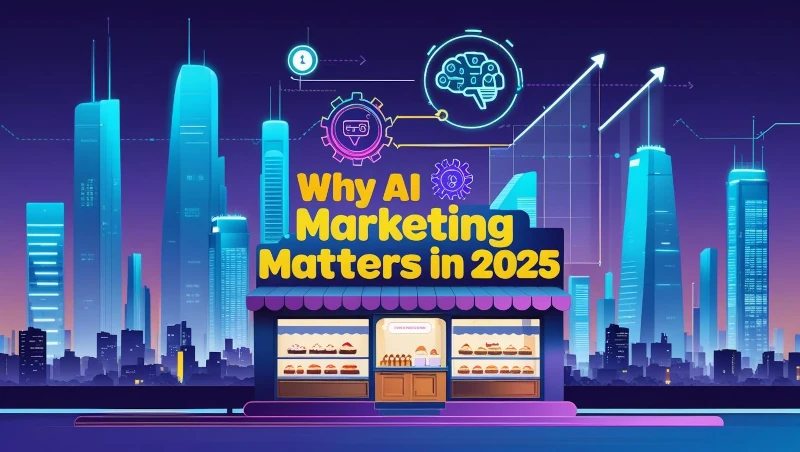
Why Small Businesses Can’t Ignore AI
Picture this: a local bakery uses AI to send personalized offers, like “20% off your favorite cinnamon rolls,” based on past purchases. That’s AI marketing for small business in action—building loyalty without extra effort. With thousands searching for “how to use AI for small business marketing,” entrepreneurs are eager to jump on board.
AI also helps you compete with bigger players. Tools like HubSpot or Jasper.ai let you create professional campaigns without a big team. Plus, AI’s data-crunching power means you’re not guessing what works—you’re knowing. Who doesn’t want that, right? Want more tips? Check out Small Business Trends for 2025.
Quick Tip: Try a free AI tool like ChatGPT to brainstorm marketing ideas. Type “Give me 10 email subject lines for my coffee shop” and watch the ideas flow!
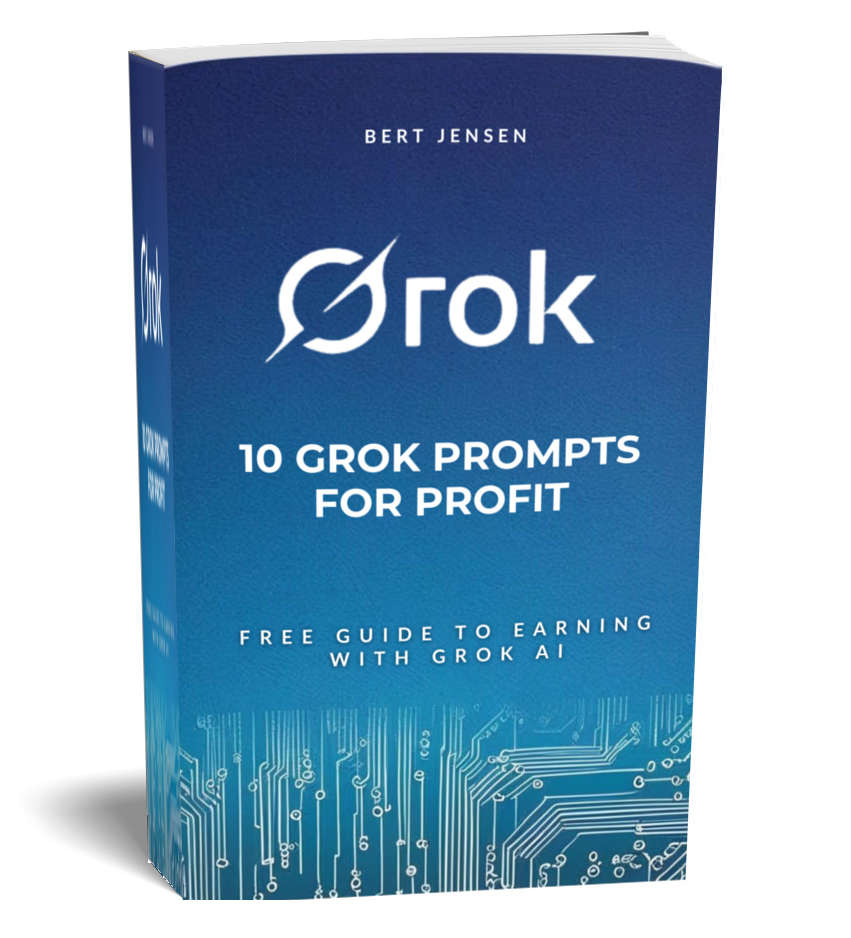
Top 10 AI Marketing Strategies for Small Businesses
Here’s the no-fluff, good stuff: 10 AI-driven marketing strategies to grow your small business in 2025. Each includes a how-to, example, tool, and quick tip. Let’s make some magic happen!
1. Automate Email Campaigns with AI
Email marketing is a goldmine, but personalizing emails for every customer? That’s a time suck. AI marketing for small business solves this by analyzing data to send tailored emails at the perfect moment, boosting open rates and sales.
How It Works: AI tools like HubSpot’s CRM scan customer behavior—purchases, clicks, preferences—and craft emails that feel personal. For example, a customer who buys dog treats gets an email about a new pet product, not cat litter.
Example: A boutique uses AI to send “20% off your favorite dress style” emails, increasing repeat purchases by 15%.
Tool: HubSpot (free tier) or Mailchimp’s AI features.
Quick Tip: Start with one campaign, like a welcome email for new subscribers, and check open rates in your tool’s dashboard.
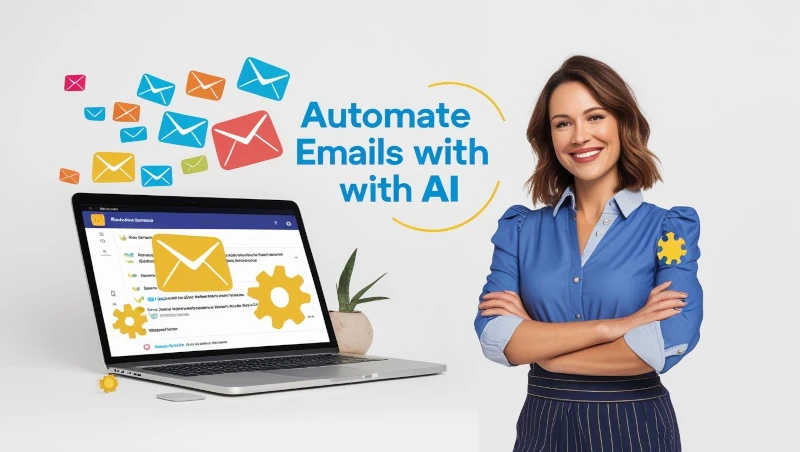
2. Use AI Chatbots for 24/7 Customer Support
Ever lost a sale because you couldn’t answer a question at 2 a.m.? AI chatbots are your round-the-clock support team, reducing bounce rates and keeping customers happy.
How It Works: AI chatbots like Tidio answer common queries, recommend products, and even process orders. They learn from interactions to get smarter over time.
Example: A pet store’s chatbot helps customers find the right dog food, answering “What’s best for a puppy?” in seconds, leading to a 10% sales bump.
Tool: Tidio (free plan) or ManyChat for social media.
Quick Tip: Set up a chatbot on your website in 10 minutes—most tools have drag-and-drop setup.
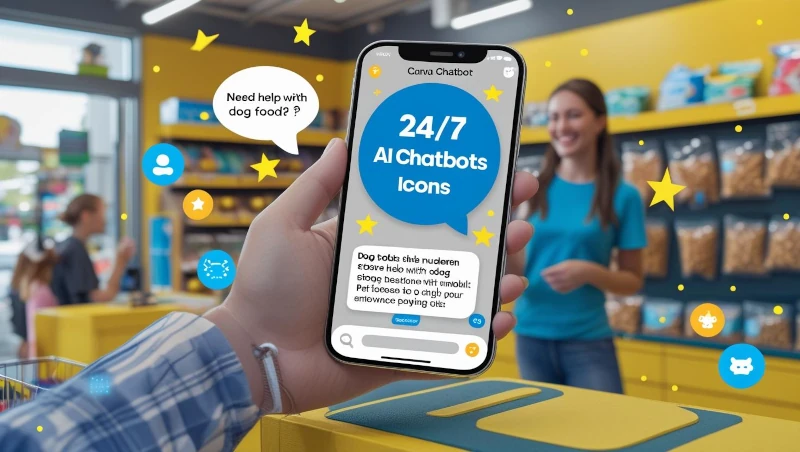
3. Create AI-Generated Content
Writing blog posts, social media captions, or product descriptions can feel like a full-time job. AI marketing for small business makes content creation fast and budget-friendly.
How It Works: AI tools like Jasper.ai generate drafts based on your input. You tweak them to match your brand’s voice, and boom—professional content in minutes.
Example: A freelancer uses AI to draft 1,000-word blogs on “Top 5 Graphic Design Trends,” cutting writing time by 50%.
Tool: Jasper.ai or Copy.ai (both offer free trials).
Quick Tip: Edit AI content to add your brand’s personality—think of AI as your rough draft wizard.
4. Optimize Ads with AI
Running ads can be a gamble, but AI marketing for small business takes the guesswork out. AI targets high-intent customers, stretches your budget, and boosts ROI.
How It Works: Platforms like Google Ads use AI to analyze user behavior and show your ads to people most likely to buy. It adjusts bids and keywords in real-time.
Example: A coffee shop runs Google Ads with AI optimization, targeting “coffee near me” searches, and sees 20% more foot traffic.
Tool: Google Ads Smart Bidding (works with any budget).
Quick Tip: Test AI-driven ads with a $50 monthly budget—start small and scale what works.
5. Personalize Customer Experiences
Customers love personal touches, and AI makes it easy to deliver. By analyzing data, AI predicts preferences, making every interaction feel special.
How It Works: AI tools like Dynamic Yield track browsing history and purchases to recommend products or content tailored to each customer.
Example: An online store adds a “Recommended for You” section, suggesting items based on past purchases, boosting sales by 12%. See how in our How to Set Up a Shopify Store guide.
Tool: Dynamic Yield or Shopify’s AI recommendations (free with Shopify).
Quick Tip: Add a “Recommended for You” section to your website or emails this week.
6. Use AI for Social Media Scheduling
Posting consistently on social media is a must, but it’s time-consuming. AI marketing for small business automates scheduling, so you stay active without the hassle.
How It Works: Tools like Buffer use AI to suggest the best posting times and create captions based on your audience’s interests.
Example: A yoga studio schedules Instagram posts with AI, sharing class updates at peak times, growing followers by 25%.
Tool: Buffer or Hootsuite (both have free plans).
Quick Tip: Schedule one month of posts in a day—use AI to pick optimal times.
7. Analyze Competitors with AI
Want to outsmart your competitors? AI marketing for small business uncovers their keywords, ads, and strategies, giving you an edge.
How It Works: Tools like SEMrush analyze competitor websites, revealing their top keywords and traffic sources. You can target gaps they’re missing.
Example: A salon uses LowFruits to find untapped keywords like “eco-friendly haircare,” ranking higher than competitors.
Tool: SEMrush (free trial) or LowFruits.
Quick Tip: Run a free competitor analysis with SEMrush’s trial to spot one keyword to target.
8. Predict Trends with AI Analytics
Staying ahead of market shifts is tough, but AI analytics make it easier. By crunching data, AI predicts what’s next, helping you plan smarter.
How It Works: Tools like Google Analytics use AI to spot trends, like which products are gaining traction or what customers want.
Example: A retailer uses AI to notice a spike in demand for sustainable bags, stocking up early and boosting profits.
Tool: Google Analytics Predictive Metrics (free with GA4).
Quick Tip: Check your analytics dashboard weekly to spot one trend to act on.
9. Optimize for Voice Search with AI
Voice search is booming—125.2 million users globally in 2025, per Statista. AI marketing for small business helps you rank for conversational queries like “plumber near me.”
How It Works: AI tools like AnswerThePublic analyze voice search patterns, suggesting long-tail keywords phrased as questions.
Example: A plumber optimizes for “Who’s the best plumber in [city]?” and lands in Google’s featured snippets, driving 30% more calls. Learn more in our Local SEO Tips for 2025.
Tool: AnswerThePublic (free version).
Quick Tip: Add a FAQ page with questions like “How much does a plumber cost?”
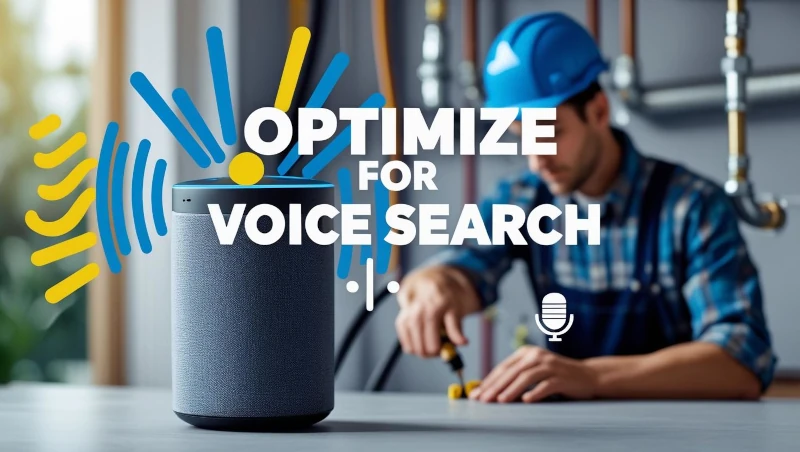
10. Use AI for Customer Feedback Analysis
Customer reviews and surveys are goldmines, but analyzing them manually is a slog. AI marketing for small business digs into feedback to uncover insights fast.
How It Works: Tools like MonkeyLearn use AI to detect sentiment (positive, negative) and highlight themes in reviews.
Example: A restaurant uses AI to find customers love their vegan menu, promoting it more and increasing orders by 18%.
Tool: MonkeyLearn or Qualtrics (free trials).
Quick Tip: Analyze 10 customer reviews with a free AI tool to find one actionable insight.
How to Get Started with AI Marketing
Your First Steps
Feeling pumped but not sure where to begin? AI marketing for small business is easier than you think. Pick one strategy—like email automation or a chatbot—and test it for a month. Use free or low-cost tools to keep it budget-friendly. Track results with Google Analytics or your tool’s dashboard to see what’s working.
For example, set up a free HubSpot account and create one automated email campaign. Spend an hour learning the tool, and you’ll be amazed at how simple it is. The key is to experiment, learn, and scale what works.
Common Mistakes to Avoid
- Over-relying on AI: Always add a human touch to content or campaigns.
- Ignoring brand voice: Make sure AI outputs sound like you, not a robot.
- Skipping tracking: Use analytics to measure results, or you’re flying blind.
Quick Tip: Dedicate one hour this week to set up an AI tool—small steps lead to big wins!
Conclusion
You’ve got this, small biz rockstar! AI marketing for small business is your ticket to saving time, boosting sales, and competing with the big dogs in 2025. From automating emails to optimizing for voice search, these 10 strategies are practical, affordable, and proven to work. Whether you’re a bakery, freelancer, or e-commerce store, AI levels the playing field, letting you focus on what matters—building your dream.
You’re not just building a business—you’re building freedom. Pick one AI strategy today, give it a spin, and watch the magic happen. Got a favorite strategy or tool? Drop it in the comments—we’d love to hear from you! Want more 2025 tips? Check out our post on Small Business Trends for 2025.
FAQs
What are the best AI tools for small businesses in 2025?
Tools like HubSpot, Jasper.ai, Tidio, and Google Analytics offer free or affordable plans for small businesses. Start with one that fits your needs, like email automation or content creation.
How much does AI marketing for small business cost?
Many AI tools have free tiers or trials. Paid plans start as low as $10/month (e.g., Tidio). Test strategies with minimal investment and scale as you see results.
Can AI replace human marketers?
Nope! AI handles repetitive tasks, but your creativity and brand voice are irreplaceable. Use AI as a helper to amplify your efforts.
How do I measure AI marketing success?
Track metrics like email open rates, website traffic, or ad conversions using Google Analytics or your tool’s dashboard. Set goals, like a 10% sales increase, to gauge impact.
Is AI marketing for small business hard to learn?
Not at all! Most tools are user-friendly with tutorials. Start with one strategy, like a chatbot, and spend an hour exploring. You’ll be a pro in no time!
